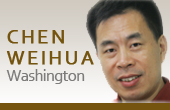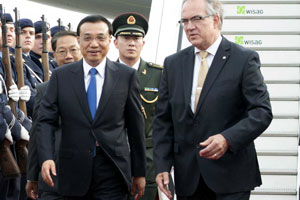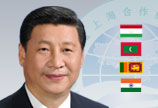S.Korea deplores Abe's offering to war-linked shrine
(Xinhua) Updated: 2014-10-17 16:49
 |
Seoul's Foreign Ministry said in a spokesman's statement that Abe's offering and some Japanese lawmakers'visit to the war-linked shrine were"beyond deplorable," noting it was an act of dismissing criticism from neighboring countries and the international society.
Earlier in the day, Abe dedicated a"masakaki" tree offering under the title of "prime minister" to the shrine, which glorifies Japan's past war of aggression and its colonial rule of the Korean Peninsula during the World War , said the statement.
About 110 Japanese lawmakers from a nonpartisan group visited the shrine, which honors 14 Japanese military leaders convicted as Class-A war criminals along with other war dead.
The lawmakers included members from the ruling Liberal Democratic Party and the main opposition Democratic Party of Japan as well as some other parties.
The statement said Japanese politicians'respect to the place where"convicted Class-A war criminals as leaders of war of aggression are enshrined" would be an act of snubbing an international order, urging Japanese politicians to firmly recognize this point.
It urged Japan to move toward a bright future by reflecting sincerely on its history, calling on Tokyo not to trap itself in the dark past.
Abe visited the Yasukuni Shrine in December 2013, becoming the first Japanese prime minister in seven years who pays tribute to the notorious shrine. It stirred a wide range of condemnation and stern responses from Japan's neighboring countries, especially from China and South Korea.
South Korean President Park Geun-hye has refused, since her inauguration in February 2013, to hold a bilateral summit with Abe, citing his wrong perception of history.
Abe dedicated his offerings to the shrine during the spring festival earlier this year and on Aug 15 that marked the 69th anniversary of Japan's surrender in the World War.










